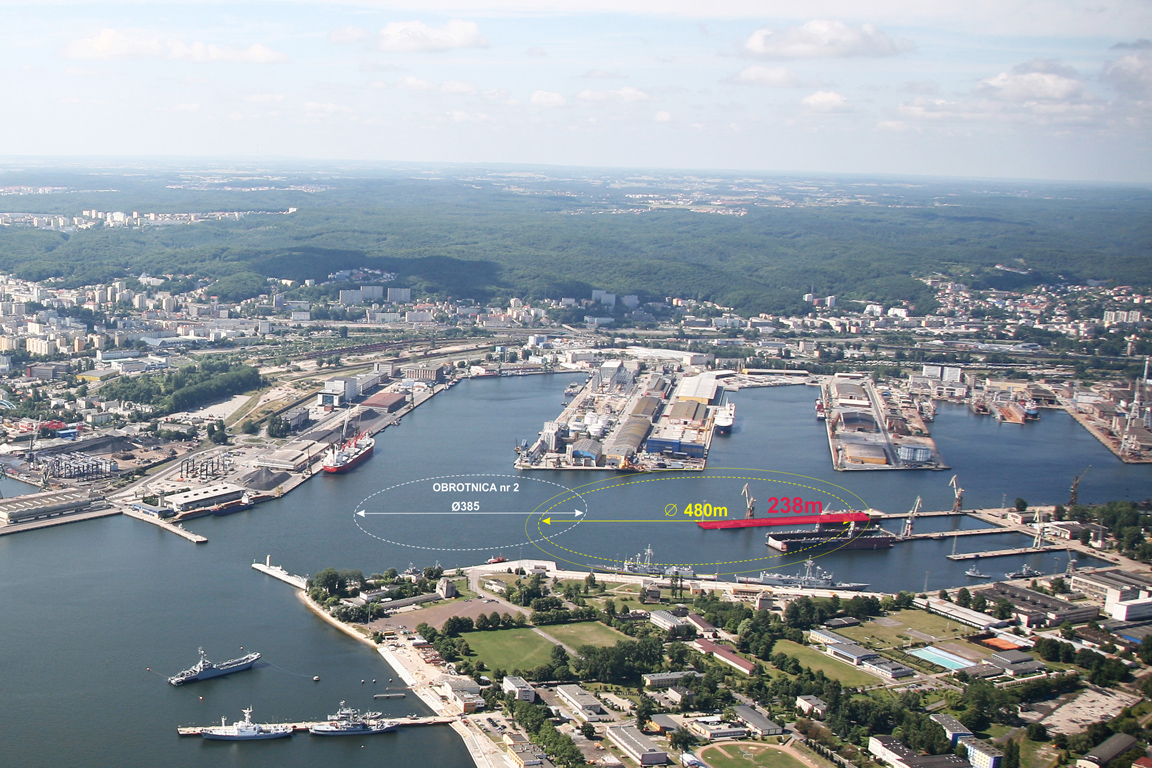The American Chamber of Commerce in Poland has written a letter to Senate Speaker Tomasz Grodzki about its concerns over Poland’s ability to successfully protect its critical infrastructure. This mostly pertains to harbors that are strategically important for Poland’s commercial and raw materials transshipment, and also play an important role in the transshipment of NATO troops, such as the Port of Gdynia.
Port Of Gdynia. Picture by the Management Board of the Port of Gdynia S. A. / port.gdynia.pl
The letter, dated early June, was signed by the Chamber’s Board of Directors Chairman, Tony Housh. It states that in the case of entities that „do not share Poland’s democratic values and commitment to national security,” the legal situation of real estate management within the borders of seaports should be regulated. The point is to ensure that entities that own real estate in ports should undergo a thorough verification from the point of view of the state security.
The problem of protecting critical infrastructure is not only Poland’s concern. In Europe, but also across the world, individual governments are now looking at the owners of sensitive real estate within the borders of seaports. The problem has been downplayed for years, and is now becoming one of the key issues from a geopolitical perspective.
„The consequences of having control over the infrastructure in Poland – or using it in vulnerable places by unreliable actors-can have a significant impact on national security, as well as on the ability of the United States and NATO countries to conduct security – related activities in Poland,” Housh wrote.
The problem of critical infrastructure and lack of understanding at the political level is much broader and more serious than it seems. This time, the Senate took care of it, and the regulations were introduced in the Law on the Management of Real Estate.
Americans suggest that a more thorough verification of entities that could influence future investment decisions in our country be introduced. Verification would be handled, as stated in the letter, by „numerous organizations and ministries,” including the Ministry of National Defense.
„A transparent and clearly defined process of national security vetting of corporations located in vulnerable locations will help identify and manage current and future investors or operators who disagree with the principles and objectives of Poland and NATO, in particular on critical infrastructure,” the letter explained.
Americans do not want Chinese, Russians or citizens of other countries that do not belong to the EU, NATO or the informal club of „friends and allies” of the United States to be present near their assets.
The former head of the Internal Security Agency, gen. Krzysztof Bondaryk is certain about this.
„This letter is about ports and companies with Chinese capital, which lease, for example, waterfronts. And that makes sense. We can understand that it would be strange for a member of the EU and NATO, to uncritically hand over critical infrastructure to the management from states that are not members of these organizations,” Bondaryk said.
American investments in Poland are growing. The latest example is Intel’s new factory. The large semiconductor assembly plant is to be built near Wrocław. The whole thing is worth USD 20 billion. It is hardly surprising that the Americans do not want the Chinese or Russians to appear suddenly, a few dozen meters from the assembly plant. In Warsaw, office space in several complexes is also rented by Google.
Gdynia is one of the main ports of transshipment of equipment from the USA. It gained special importance during the Russian-Ukrainian war. It was in Gdynia that a lot of equipment and supplies were unloaded, which went to our eastern neighbor. Polish arms purchases and supplies also passed through Gdynia.
O2.pl /Bartosz Siemieniuk









